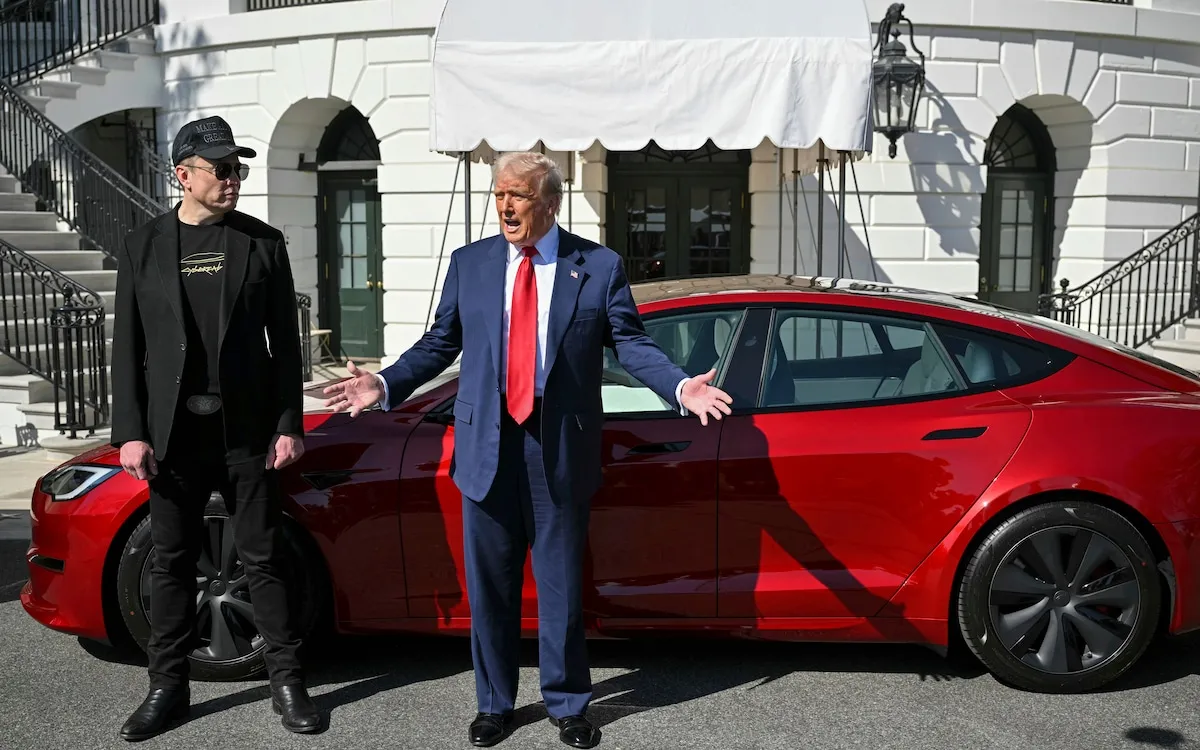
In a recent incident that stirred up social media, tech billionaire Elon Musk found himself at the receiving end of ridicule after making a spelling error in a tweet praising former President Donald Trump. This tweet came shortly after Trump signed an executive order aimed at dismantling the Education Department, fulfilling a significant campaign promise from the previous year.
Musk celebrated Trump's executive order by sharing a meme on the social media platform X, which featured an edited image of Trump making a peace sign next to a headstone symbolizing the Department of Education. However, the meme included a glaring spelling mistake, displaying the text “Departmen of Education” instead of the correct term.
The misspelling did not go unnoticed, as social media users quickly seized the opportunity to mock Musk. Critics argued that this error underscored the need for a functioning Education Department. One user quipped, “You misspelled ‘department,’ thus proving why we need a departmenT of education and why you should have studied something other than money.” Others echoed similar sentiments, emphasizing that the misspelling was a clear indicator of why educational institutions are essential.
One insightful comment from a user highlighted the complexities surrounding Trump's order, noting that the former president cannot completely abolish the Education Department without Congressional approval. “Elon Musk can’t spell. He also doesn’t know that Congress has to get rid of the ‘Departmen’ of Education and that Donald’s little executive order is meaningless,” the tweet stated, reflecting widespread confusion over the executive order's implications.
Trump has long criticized the Education Department, labeling it as wasteful and influenced by liberal ideology. However, the reality is that fully dismantling the department is likely impossible without legislative action, as it was established by Congress in 1979. While Republicans plan to introduce legislation to eliminate the department, Democrats have rapidly mobilized to oppose this initiative.
The executive order instructs the education secretary to “take all necessary steps to facilitate the closure of the Department of Education and return authority over education to the States and local communities.” However, it lacks specifics on how this closure will be implemented or what areas will be impacted. The White House has indicated that while certain critical functions will remain, the department’s overall scope will be reduced.
Trump's administration has asserted that it will retain essential functions like Title I funding for low-income schools, Pell grants, and support for children with disabilities. Nevertheless, the order raises questions about the future management of federal student loans, as it claims the Education Department lacks the resources to oversee its $1.6 trillion loan portfolio and suggests returning these functions to an entity capable of serving students effectively.
The fallout from Musk's tweet serves as a reminder of the vital role education plays in society, while also highlighting the challenges that come with political discourse on such significant matters. As the conversation around the future of the Education Department continues, the implications of Trump's executive order remain to be fully understood. This incident not only emphasizes the importance of clear communication but also the necessity for informed discussions regarding educational policies.